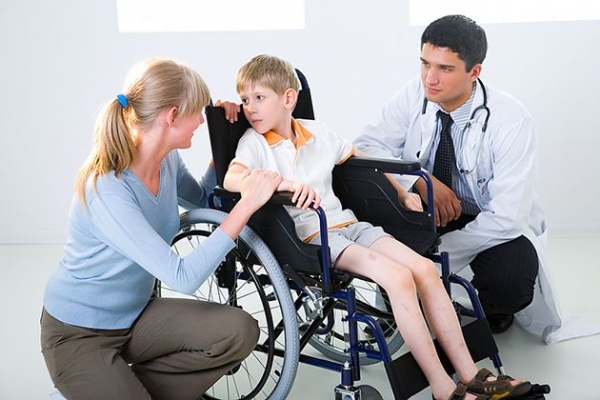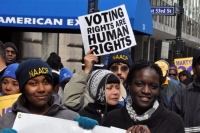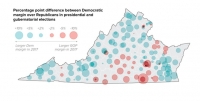Those states were among 21 — including some big Democrat-led states, such as California — that were required to widen Medicaid eligibility for children between the ages of 6 and 18 by 2014. That little-known provision of the health law helped at least 1.5 million kids gain coverage in the state-federal health insurance program for the poor, according to a survey of a dozen states by Kaiser Health News.
While many of those kids were previously enrolled in other public programs, children are typically better off in Medicaid because it offers broader health benefits at lower cost to their families. The higher eligibility level was already in effect for children younger than 6.
California led the way, increasing Medicaid enrollment by 715,000 children ages 6 to 18. Five other states — Texas, New York, Florida, Georgia and Colorado — accounted for about 750,000 additional enrollees, according to data measuring growth through this summer.
Consumer advocates welcome the expansion of eligibility to children in families making 138% of the federal poverty level, or $32,913 for a family of four — raised from the poverty level, or $23,850 for a family of four.
But they say more children would be enrolled had more states expanded the program for adults. That's because parents who sign up themselves are more likely to sign up their kids.
"It's a lost opportunity for Texas to cover the kids and teens, but not their parents," said Anne Dunkelberg, associate director of the left-leaning Center for Public Policy Priorities in Austin.
While much attention has been paid to the 23 GOP-led states, including Florida and Texas, that have not expanded Medicaid for adults since the Supreme Court made that optional in 2012, there's been little publicity about the mandatory Medicaid expansion for school-age children.
One reason is that the change affected fewer than half the states — those that had not previously raised eligibility levels for school-age kids. The 2010 health law required states to expand by 2014, though California, Colorado and New York started earlier.
In addition to those three and Texas and Florida, the other states that broadened eligibility for children are Alabama, Arizona, Arkansas, Delaware, Georgia, Kansas, Mississippi, Nevada, North Carolina, North Dakota, Oregon, Pennsylvania, Tennessee, Utah, West Virginia and Wyoming. Ten of these states expanding kids' coverage opted against expanding it for adults, after the Supreme Court gave them that option.
CHIP VS. MEDICAID
In most states, between half and two-thirds of the children joining Medicaid were previously covered by the Children's Health Insurance Program (CHIP), the federal-state program that helps children in families with incomes too high to qualify for Medicaid but too low to afford insurance on their own.
But experts say the benefits are generally richer in Medicaid. For instance, families had to pay monthly premiums for their kids' CHIP coverage in six states that expanded Medicaid for children — Georgia, Alabama, Arizona, Delaware, Florida and Utah — according to Joan Alker, executive director of Georgetown University Center for Children and Families.
"Having (to pay) premiums depresses enrollment" in CHIP, she said.
Medicaid requires that children receive comprehensive services, including physical exams, immunizations, laboratory tests, and dental, vision, and hearing services. CHIP benefits are not as broad in all states.
Still, state officials and advocates in California and Pennsylvania worry that families may have to find new doctors for their kids because Medicaid does not have as many participating providers as CHIP in some places.
"It's a mixed bag as Medicaid has lower costs but possibly fewer providers," said Kelly Hardy, senior director of health policy for the California advocacy group Children Now.
Nonetheless, Hardy said the expansion makes life easier for parents who will no longer have to deal with having one child in CHIP and another in Medicaid because income eligibility used to vary by age. Siblings in different programs might have different benefits, provider networks and cost-sharing.
Unlike Medicaid expansion for adults, the federal government is not paying the full cost of expanded eligibility for the first three years. Instead, states will get the higher federal matching rate for CHIP — about 71% of the costs.
In Texas, nearly 2.9 million children were signed up for Medicaid as of August 2014 — up almost 300,000 from December 2013. School-age children made up most of the increase. In the same period, Texas' CHIP enrollment fell by nearly 160,000 to about 406,000.
"There is no doubt we are seeing a welcome mat effect" involving children who were previously eligible but not enrolled, and who were signed up because of the publicity about the ACA's open enrollment, said Dunkelberg of the Center for Public Policy Priorities.
STATES ADAPTING
In Florida, enrollment of school-age children in Medicaid rose by 137,000 this year, which included more than 62,000 kids who transferred from the state's CHIP program, according to Florida Healthy Kids Corp., the nonprofit that runs CHIP in the state. That switch saved families money, since they previously had to pay a $15- or $20-a-month premium in CHIP.
In Georgia, meanwhile, Medicaid enrollment for school-age kids rose by 81,000 to about 632,000 since last December. At the same time, the state's CHIP enrollment fell by about 25,000.
Georgia Medicaid Director Jerry Dubberly said the state did little to publicize the expansion for children. He attributes the higher enrollment to that eligibility change, along with a reduction in the number of dropouts as a result of the need to renew coverage for children only once a year under the health law.
Pennsylvania officials won federal approval to delay shifting children from CHIP to Medicaid until the end of the year because of concerns that families would have to find new doctors. About 32,000 children in CHIP qualify for Medicaid in Pennsylvania.
Even so, the number of Medicaid-enrolled children older than six in Pennsylvania rose by about 18,000 this year to 668,000, which could include children who were uninsured or who switched from private insurance.
Officials in Florida, Georgia and Texas discount concerns about the availability of providers.
Greg Mellowe, policy director of the consumer group Florida CHAIN, said he hopes the expansion of Medicaid to tens of thousands of children doesn't go unnoticed by state lawmakers.
"While Florida continues to have the option to reject expansion for adults in the legal sense," he said, "this is yet another reminder that doing so isn't sensible or justifiable in any other sense."
Kaiser Health News is an editorially independent program of the Kaiser Family Foundation.
Link to original article from Kaiser Health News


 Imagine going to the polls on Election Day and discovering that your ballot could be collected and reviewed by the
Imagine going to the polls on Election Day and discovering that your ballot could be collected and reviewed by the ACLU Blueprints Offer Vision to Cut US Incarceration Rate in Half by Prioritizing 'People Over Prisons'
ACLU Blueprints Offer Vision to Cut US Incarceration Rate in Half by Prioritizing 'People Over Prisons'  "These disasters drag into the light exactly who is already being thrown away," notes Naomi Klein
"These disasters drag into the light exactly who is already being thrown away," notes Naomi Klein  How about some good news? Kansas Democratic Representative advances bill for Native Peoples.
How about some good news? Kansas Democratic Representative advances bill for Native Peoples.  What mattered was that he showed up — that he put himself in front of the people whose opinions on
What mattered was that he showed up — that he put himself in front of the people whose opinions on On a night of Democratic victories, one of the most significant wins came in Virginia, where the party held onto
On a night of Democratic victories, one of the most significant wins came in Virginia, where the party held onto A seismic political battle that could send shockwaves all the way to the White House was launched last week in
A seismic political battle that could send shockwaves all the way to the White House was launched last week in In an interview with Reuters conducted a month after he took office, Donald Trump asserted that the U.S. had “fallen
In an interview with Reuters conducted a month after he took office, Donald Trump asserted that the U.S. had “fallen Attorney General Jeff Sessions overturned the sweeping criminal charging policy of former attorney general Eric H. Holder Jr. and directed
Attorney General Jeff Sessions overturned the sweeping criminal charging policy of former attorney general Eric H. Holder Jr. and directed